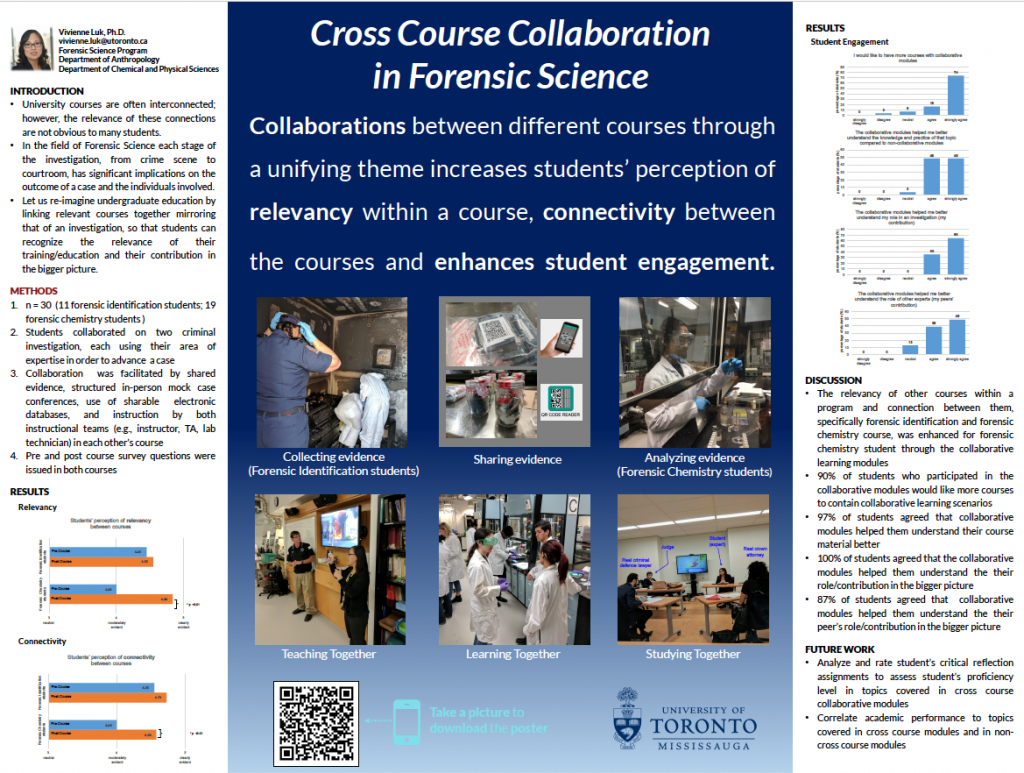Vivienne Luk
Assistant Professor, Teaching Stream, Forensic Science, University of Toronto Mississauga
Title: The Impact on Student Learning in Forensic Science Cross-Course Collaborative Projects
Research Focus: My research focuses on the impact on student learning of those engaged in cross-course collaborative projects. University courses are often interconnected; however, the relevance of these connections are unclear to many students. The concept of relevancy is particularly important in the field of forensic science since each stage of an investigation, from crime scene to courtroom, has significant implication on the outcome of a case and the individuals involved. My research goal is to increase connectivity and relevancy between courses within the forensic science program and to enhance student learning through collaborative learning situations.
Collaborative learning has been shown to promote higher individual achievement in students compared to other instructional models, such as competitive or individualistic. Higher individual achievement include knowledge acquisition, retention, accuracy and creativity of problem solving, and higher-level reasoning. Furthermore, measure of excellence in undergraduate education, which include academic development, personal development, and satisfaction with university, through collaborative learning situations have been established in a number of studies.
Study Design: During the fall semester of 2018 students and faculties from forensic identification field school (FSC407) and forensic chemistry (FSC311) worked on a case where students from each course used their area of expertise to help provide insight into a shared investigation. FSC407 focuses on the identification, collection, handling, and packaging of evidence, while FSC311 deals with chemical analysis and interpretation of evidence collected. Although the student’s role in the investigation were distinct, their work product are related. Mock case conferences and reflections assignments were used to facilitate interaction between the two groups and students were given the opportunity to observe and participate in each other’s classes.
Impact: Preliminary results are shown through student comments when they describe the cross-course collaboration:
- provided me context in the course as to why we are learning what we are learning and how it is applied to the real-world
- allowed me to understand the extent and importance of my role in a bigger process (criminal investigation)
- allowed me to understand the impact of my work product and how it can significantly affect those involved (other investigators)
SoTL Cohort Poster presented at the 2019 Teaching and Learning Symposium
